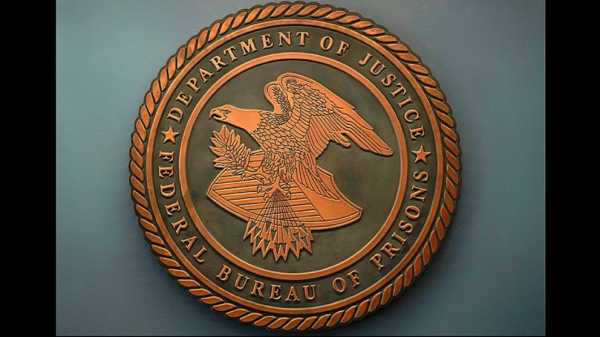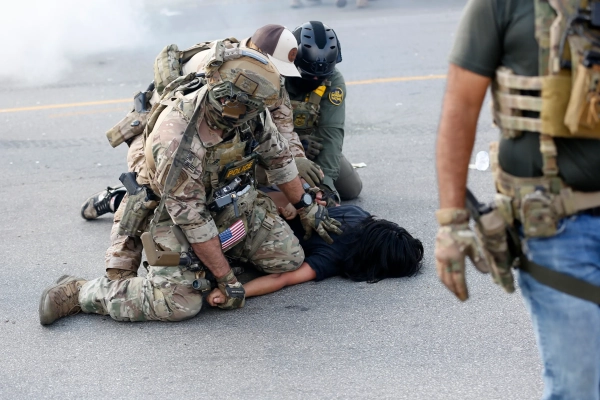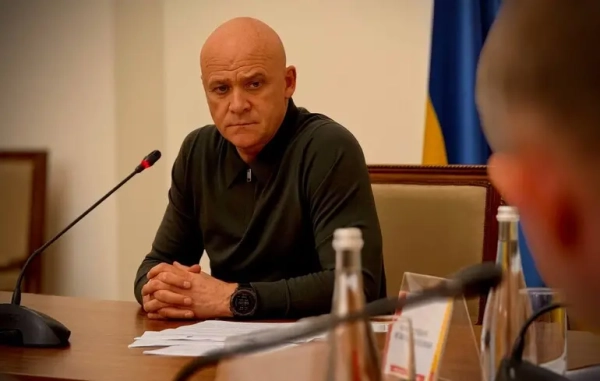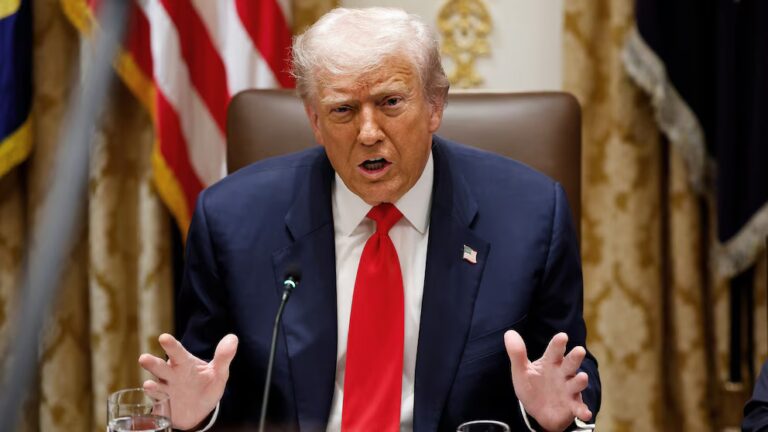All federal inmates housed in private prisons have been moved to Bureau of Prisons facilities and the agency has ended all contracts with private facilities, officials said.
Last year, in one of his first actions in office, President Joe Biden signed an executive order directing BOP to move all inmates to federal facilities, rather than have them housed in private facilities.
"We have never fully lived up to the founding principles of this nation, to state the obvious, that all people are created equal and have a right to be treated equally throughout their lives," Biden said just before signing the actions in January 2021. "And it's time to act now, not only because it’s the right thing to do. Because if we do, we'll all be better off."

In this Oct. 24, 2022, file photo, the seal for the Federal Bureau of Prisons is seen at Federal Bureau of Prisons headquarters in Washington, D.C.Carolyn Kaster/AP, FILE
MORE: Biden phases out federal use of private prisons as part of racial equity actions
"This is the first step to stop corporations from profiting off of incarcerated — incarceration that is less humane and less safe, as the studies show. And it is just the beginning, in my view, to my administration's plan to address systemic problems in our criminal justice system," Biden said.
Advocates, including the ACLU, have said that private prisons reap lucrative financial rewards while taking advantage of people who are behind bars.
On Nov. 30, the McRae Correctional Facility in McRae, Georgia, was closed, making it the final facility to shutter its doors.
Biden signed an order directing the attorney general to not renew contracts the Department of Justice has with privately-operated criminal detention facilities.
As expected it took about a year to complete the transition.
"BOP and privately managed facilities remained positive, while maintaining transparency and accountability," a release from BOP said. "BOP inmates housed in these private prisons have been transferred to BOP facilities. In the mid-1980s, the BOP began designating low security inmates with specialized needs, such as sentenced criminal aliens, to privately managed facilities to better manage the increasing population. Over time, the BOP maintained contracts for 15 facilities, housing approximately 29,164 inmates. The overall BOP population peaked in 2013, with over 219,000 inmates."
The head of the Bureau of Prisons union told ABC News that the prison population has declined to a point where private prisons aren't needed, and has said previously the agency supports the president's decision to shutter private prisons.
"The fact remains that our population has declined to the point where we can safely return offenders who were temporarily housed in private prisons to vacant BOP facilities," Shane Fausey, president of the Council of Prison told ABC News through a text message."The reality is additional beds are no longer needed and the most cost effective measure is not to renew or further private prison contracts at this time."
Sourse: abcnews.go.com






